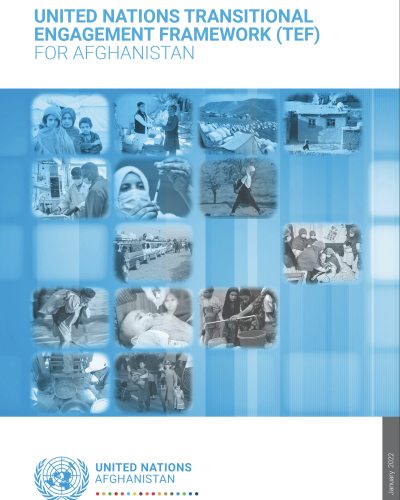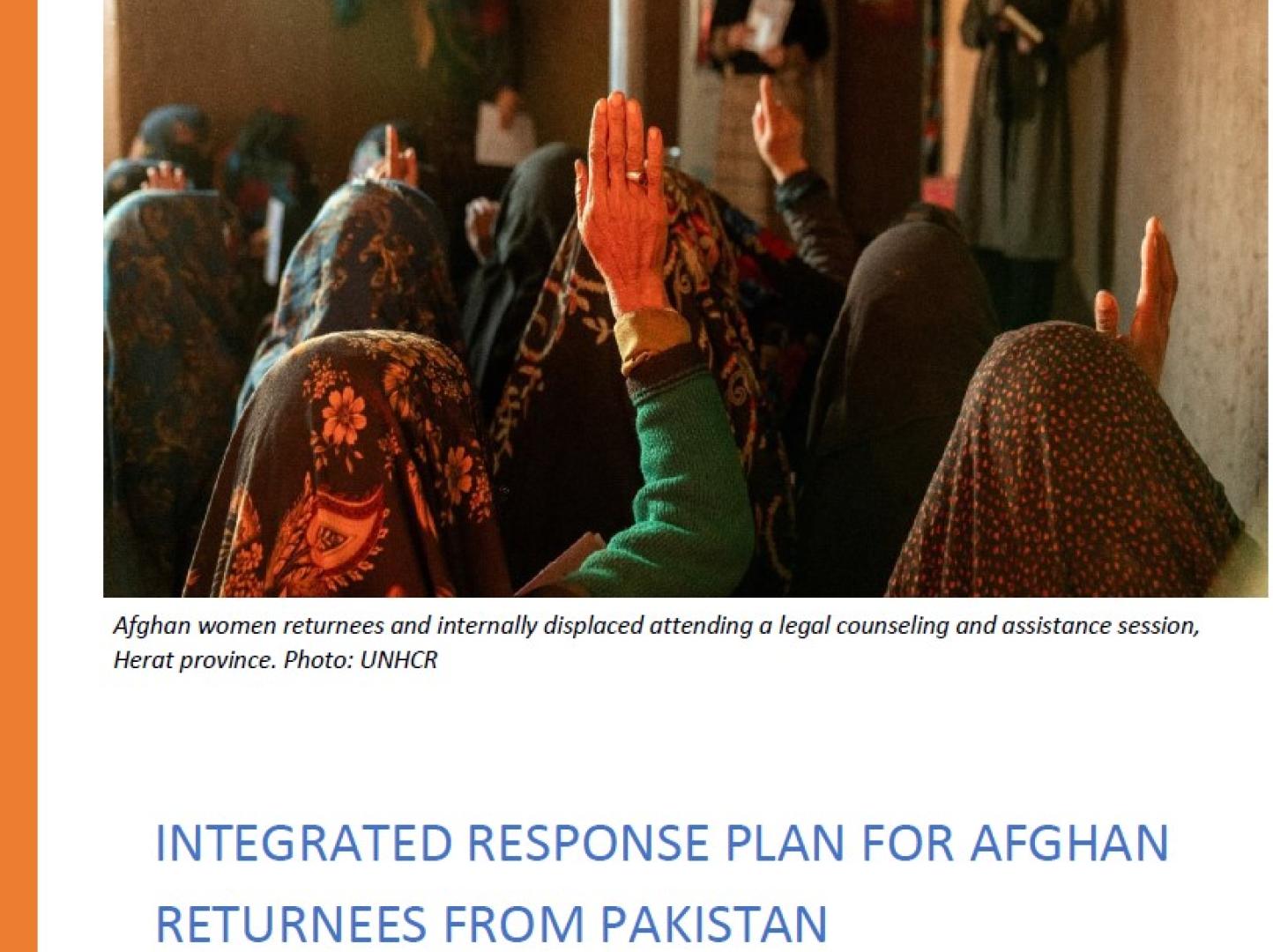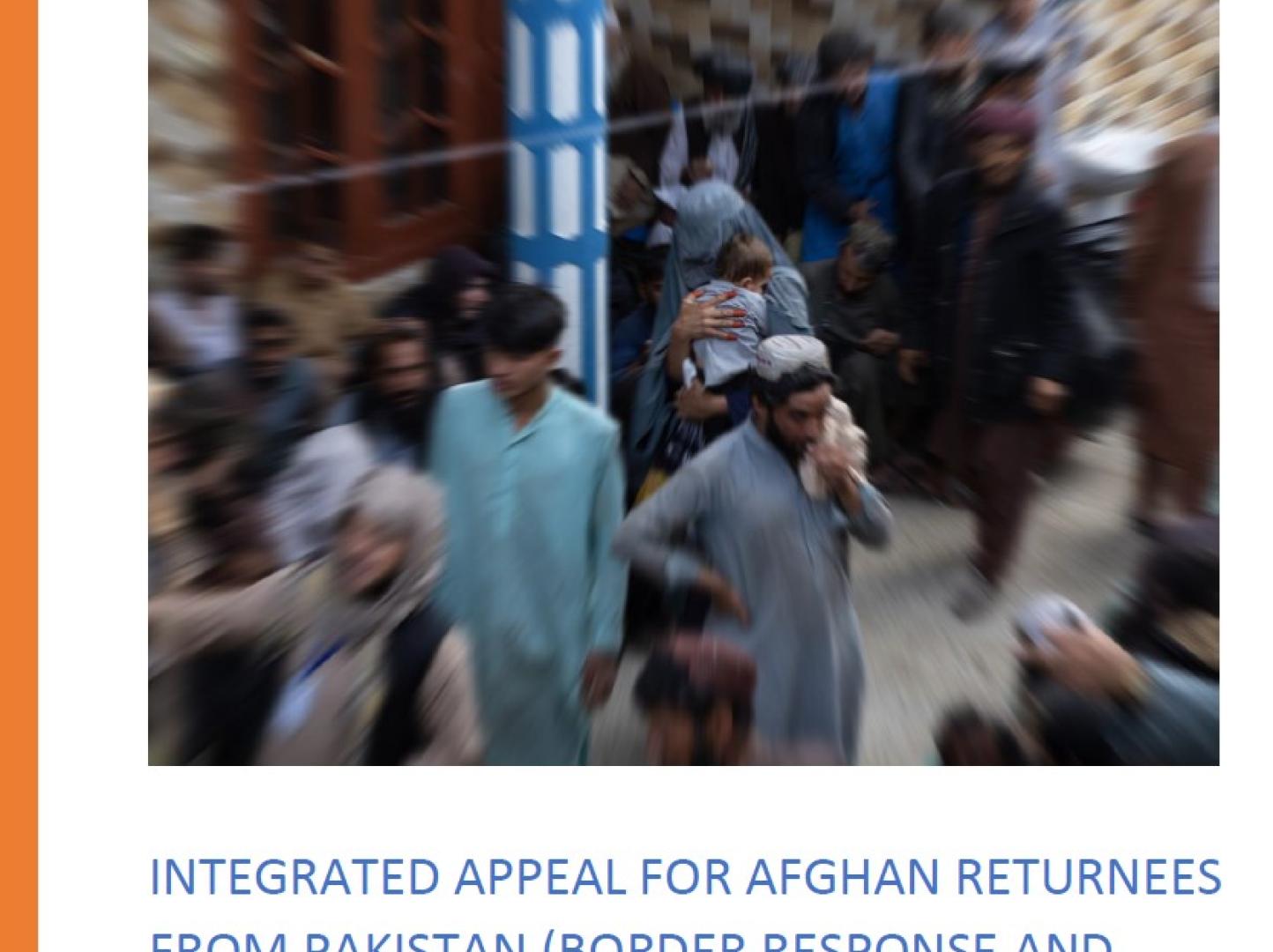UNITED NATIONS TRANSITIONAL ENGAGEMENT FRAMEWORK (TEF) FOR AFGHANISTAN

Executive Summary
The August 2021 power shift in Afghanistan has created the need for a transitional strategy for the United Nations (UN) to address the deepening political and social-economic instability. Afghanistan is confronting an unprecedented humanitarian crisis with a very real risk of systemic collapse and human catastrophe that threatens to cancel many of the development gains of the last twenty years. In 2022, 24.4 million people in Afghanistan are projected to be in humanitarian need. Almost 23 million people are projected to face acute food insecurity, and over one million children risk dying from severe acute malnutrition. Poverty may become nearly universal affecting 95-97 percent of the population.
Despite the uncertain, complex and volatile environment, the United Nations (UN) system is committed to staying and delivering assistance to the people of Afghanistan, empowering their own efforts towards recovery. Its priorities are to: provide life-saving assistance; sustain essential services; and preserve social investments and community-level systems essential to meeting basic human needs. It will do so under common guiding principles that reflect the core values of the UN.
The Transitional Engagement Framework (TEF) is the overarching strategic planning document for the UN system’s assistance in 2022. It provides strategic direction and coherence; ensures UN coordination, collaboration, and complementarity of action; and provides a basis for joint risk-sharing and accountability.
The TEF highlights the evolving geo-political and socio-economic context in which it will operate, the cost of inaction if international assistance ceases; the UN’s strategic priorities, intended collective outcomes and the resources required to achieve them; the principles of engagement for its operations; and the UN coordination and implementation arrangements.













